 |
 |
 |
| |
Monoclonal Regdanvimab Cuts COVID
Progression Risk in Placebo Trial
|
| |
| |
IDWeek, September 29-October 3, 2021
Mark Mascolini
Regdanvimab, a monoclonal antibody with activity against SARS-CoV-2, cut risk of hospital admission, oxygen therapy, or death by 70% in a multicenter, placebo-controlled trial that enrolled 1315 people with mild to moderate COVID-19 [1]. Median time to clinical recovery was 8.38 days with regdanvimab versus 13.25 with placebo.
Regdanvimab (CT-P59) is a monoclonal antibody that thwarts SARS-CoV-2 entry into cells by sticking to the spike protein of the coronavirus [2]. The European Medicines Agency gave a provisional green light to regdanvimab based on evidence that the agent lowers hospital admission rates in people with mild to moderate COVID-19 who do not need supplemental oxygen but run a high risk of progression to severe COVID-19 [2]. The Agency noted that "the results were not robust enough to reach a firm conclusion on the medicine's benefits at this point," but the regulators saw "a reasonable likelihood that the medicine may provide clinical benefit, and a low likelihood of harm" [2]. Celltrion Healthcare in Budapest is developing regdanvimab.
Results presented at IDWeek come from an ongoing phase 2/3 randomized, parallel-group, double-blind, placebo-controlled, trial of regdanvimab in outpatients with mild to moderate COVID-19 who do not require supplemental oxygen (oxygen saturation above 94% on room air). Participants had to be at least 18 years old, with symptom onset no longer than 7 days ago, and with SARS-CoV-2 confirmed at screening. Researchers randomized participants to a single 40-mg/kg intravenous infusion of regdanvimab or to placebo (presumably a sham infusion), each plus standard care. The primary endpoint was the proportion of high-risk participants with clinical symptoms requiring hospital admission or oxygen therapy or who died of COVID-19 up to day 28.
Researchers defined high-risk patients as those at high risk of hospital admission or severe COVID-19 who met at least one of several criteria: age over 50, obesity, cardiovascular disease including hypertension, chronic lung disease, type 1 or 2 diabetes, chronic kidney disease, chronic liver disease, and clinician-judged immunosuppression. The trial involves 60 sites in 14 countries.
The 656 participants randomized to regdanvimab and the 659 randomized to placebo were similar in median age (48 years overall), proportion of men (51%), proportion of whites (86%), and proportion considered at high risk of progression (67%).
Primary endpoint analysis at day 28 indicated progression (supplemental oxygen, hospitalization, or death) in 14 of 446 high-risk participants receiving regdanvimab and 48 of 434 receiving placebo (3.1% vs 11.1%, reduction rate 72%, P < 0.0001). Among all trial participants, researchers recorded progression in 16 of 656 randomized to regdanvimab and 53 of 659 randomized to placebo (2.4% vs 8.0%, reduction rate 70%, P < 0.0001). In non-high-risk participants, 1.0% receiving regdanvimab and 2.2% receiving placebo had progression to yield a 55% reduction rate with regdanvimab, which was not statistically significant (P = 0.2511).
Among high-risk participants, median time to recovery up to day 14 measured 9.27 days in the regdanvimab arm, while median time was not reached in the placebo arm because the number of people achieving clinical recovery by day 14 was less than 50%. But the researchers calculated a median reduction of 4.7 days in time to recovery with regdanvimab in high-risk patients (P < 0.0001). Among all participants median days to recovery were 8.38 with regdanvimab versus 13.25 with placebo for a median reduction of 4.9 days (P < 0.0001). In non-high-risk participants, median time to clinical recovery stood at 7.27 days with regdanvimab versus 10.41 days with placebo for a median reduction of 3.1 days (P = 0.007).
In comparisons not planned before the study began, proportions of subgroups with a high-risk factor who had COVID-19 progression by day 28 were consistently lower in the regdanvimab arm than the placebo arm, for example, for age over 50 years, 4.4% progression with regdanvimab versus 14.8% with placebo, P < 0.0001; for obesity, 3.4% progression with regdanvimab versus 11.5% with placebo, P = 0.0014; and for cardiovascular disease including hypertension, 5.0% progression with regdanvimab versus 14.1% with placebo, P = 0.0015.
Proportions of participants with 1 or more treatment-emergent adverse events were 30.4% with regdanvimab and 31.1% with placebo, of which 6.7% and 7.1% were judged related to study drug. One person receiving regdanvimab and no one getting placebo had a drug-related serious adverse event. Proportions of participants with 1 or more treatment-emergent adverse events classified as an infusion-related reaction were 0.6% with regdanvimab and 1.1% with placebo. No one stopped treatment because of a treatment-emergent adverse event.
The researchers concluded that regdanvimab has "rapid and significant antiviral effects in high-risk and non-high-risk patient groups."
References
1. Ison MG, Kim JY, Sandulescu O, et al. Therapeutic effect of regdanvimab in patients with mild to moderate COVID-19: day 28 results from a multicentre, randomised, controlled pivotal trial. IDWeek, September 29-October 3, 2021. Abstract 546.
2. European Medicines Agency. EMA issues advice on use of regdanvimab for treating COVID-19. March 26, 2021.
https://www.ema.europa.eu/en/news/ema-issues-advice-use-regdanvimab-treating-covid-19
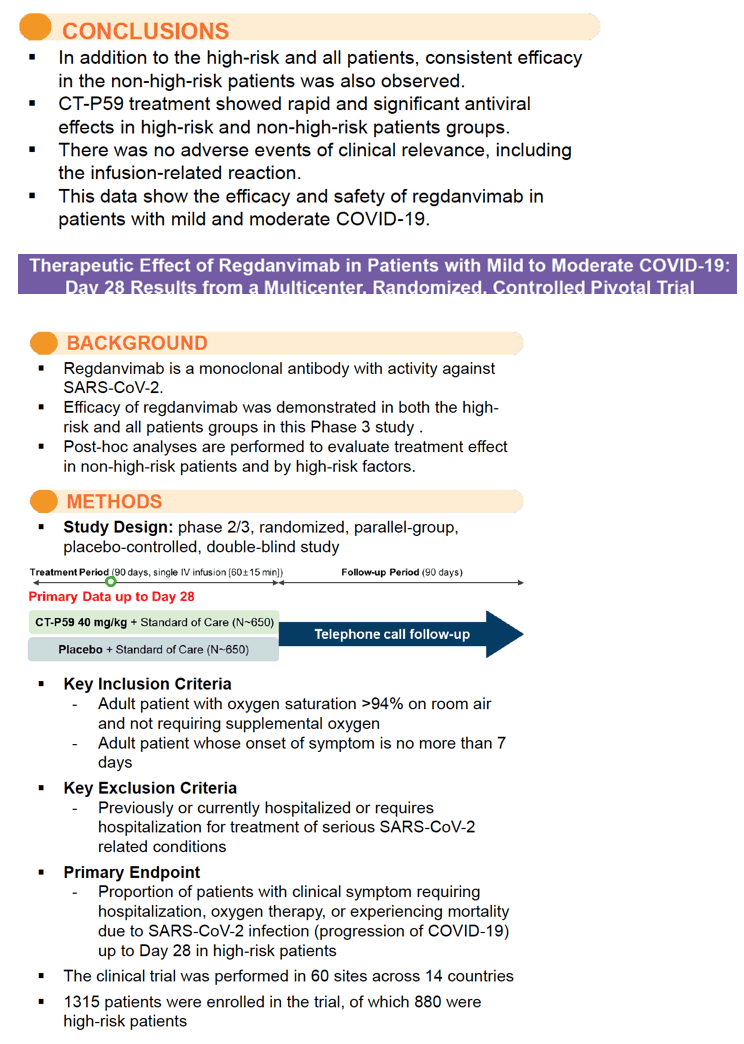
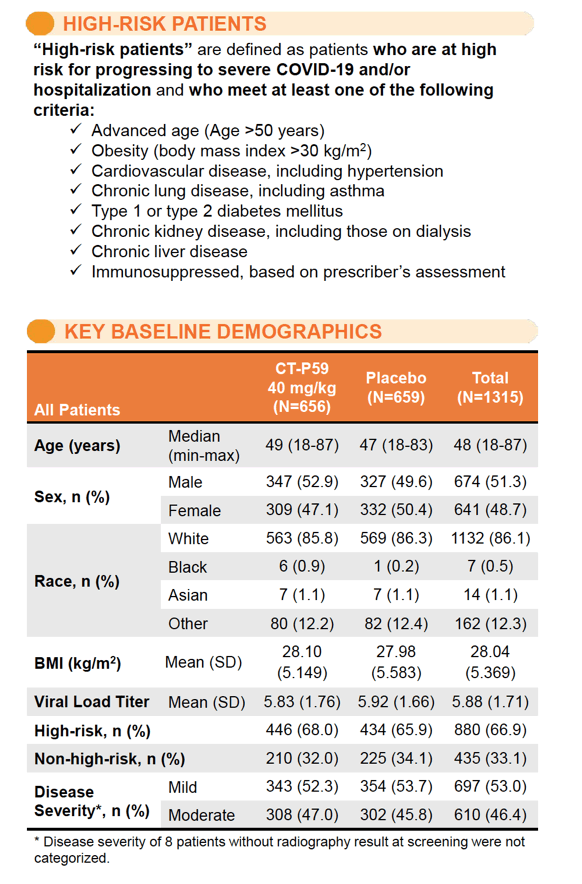
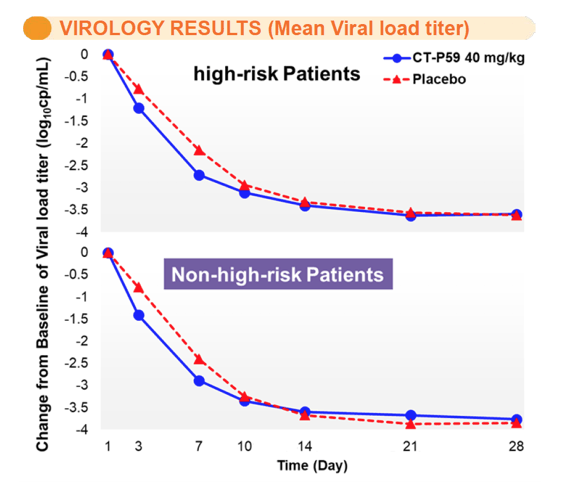
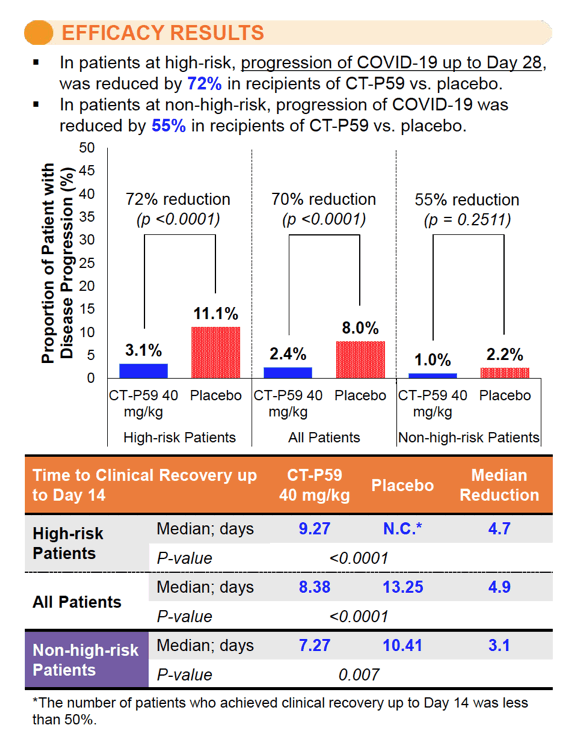
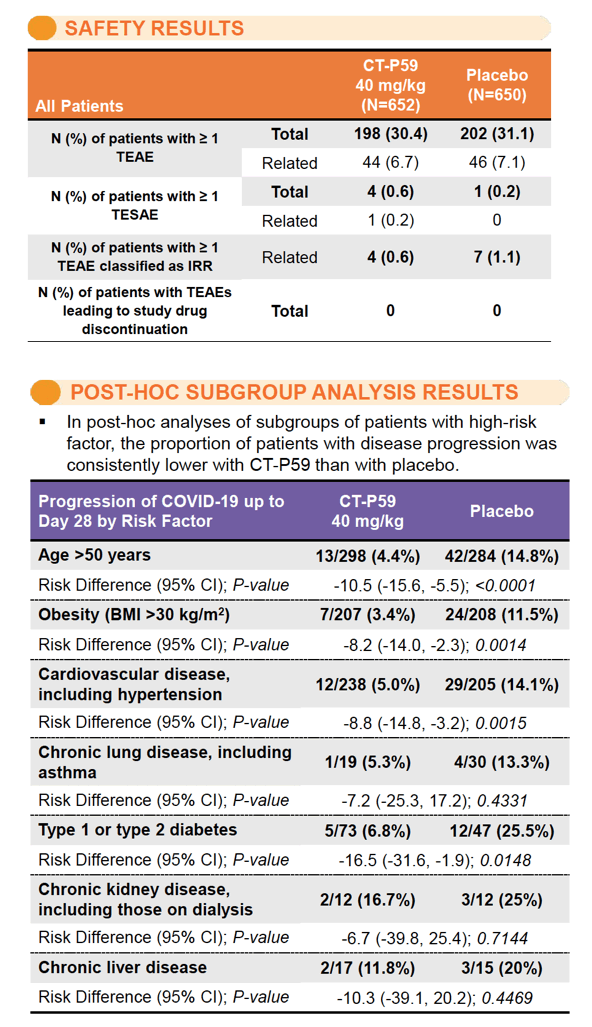
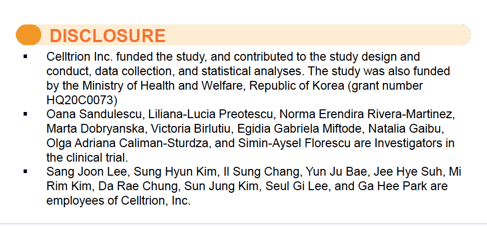
|
| |
|
 |
 |
|
|